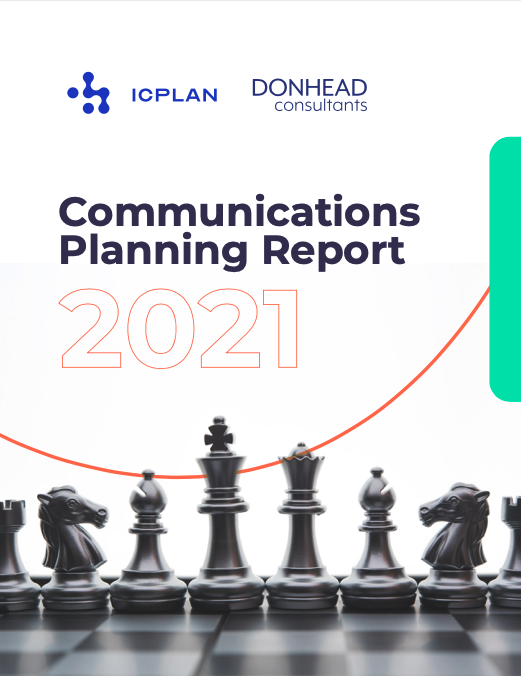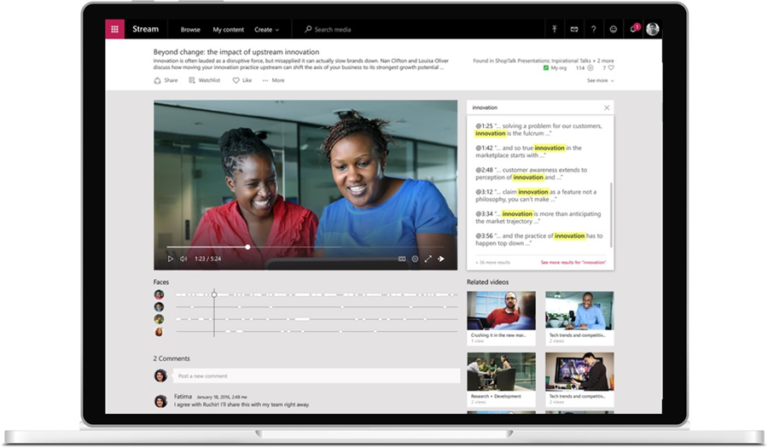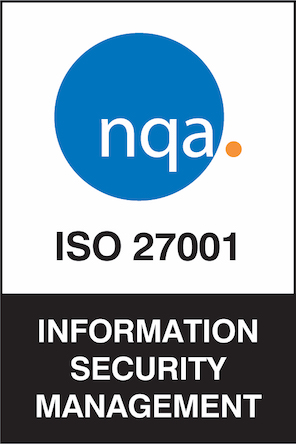In the middle of a pandemic, just when people were rioting on the streets about race and politics and the global economy went into a spin cycle, ICPlan and Donhead Consultants thought it would be a good idea to ask communicators how they approached planning. Liam FitzPatrick explains how the exercise threw up some interesting findings about what makes communicators effective.
I can’t remember where the conversation started but it eventually reached the point of “well how many communicators really take planning seriously?”
Throughout the Spring of 2020, I’d been chatting on Zoom with Dan and Maddy of ICPlan. We’re old friends and been sharing the highs and lows of lockdowns, home schooling and debating what the new world would look like for us; them as communication software providers and me as an advisor on good practice in communications teams.
So, we thought we’d ask our friends and contacts to fill in a survey. It seemed to resonate with many people – the questionnaire got shared around the world and eventually, hundreds of practitioners from every communications sub-discipline took part. And in the second half of 2020 we started sharing the raw results in a series of 1:1 conversations and virtual discussion groups with experienced professionals.
You can download the full report here:
Communications Planning Report 2021
No masterplan
The most striking message was that many communicators do not have a masterplan for what they are trying to activate with their operations. They may have specific timelines and tactics for individual projects but an overall view of why they exist and how to develop is not universal.
The people we spoke to linked this to another fact emerging from the data; people who plan are more likely to report having an educated set of internal stakeholders who appreciate what communications can do for them.
In short, if you work in an organisation that doesn’t value communications why bother thinking ahead or trying to implement a vision of reputation management or employee engagement? You’ll always be involved too late in the day to make a real difference on projects and getting leaders to engage with messaging will be a struggle.
Educating stakeholders
In contrast, communications teams that can align with organisational goals and strategies find they are more likely to be consulted and appreciated by their peers in the organisation.
The message seems to be that if you want to be valued you need to educate your stakeholders about what you can do; and you need to be educated yourself about the strategic goals and plans of your organisation.
Initially, this feels like a fairly obvious statement, but the data suggests that it’s a message that as many as four in ten communicators need to hear.
And it’s an observation that is reinforced by the finding that barely half of communications plans include anything much about audience insight or evaluation let alone links to detail about underlying business goals. However, the probability that many practitioners were still concerned with tactics rather than results did not entirely surprise our expert consultees.
They said that the profession still has a way to go to catch up with other professional disciplines in working to a structured plan.


Size matters
The research also found that size of team seems to matter in how people approach planning.
We found that the smallest and the largest teams seem to be better at planning and being aligned with each other. For the former it is probably a matter of living in a simpler world and for the latter it’s a question of necessity.
Yet mid-sized teams seem to struggle to gather intelligence, get involved in projects at an early stage or align communications.
Five key questions
After listening to the views and experiences of senior communications leaders it seems that there are five essential questions to test how planful a comms team is. There may be more but the consensus from our research is that the most universal issues are covered in these five questions:
• Do we have a master vision of communications that is aligned to business or organisational goals?
• Is there a clear methodology for planning communications – and does it involve our internal stakeholders?
• Have we a governance process which tracks the plan, keeps messages, audiences and projects aligned, and reflects on successes and failures?
• Have we the skills and mindset of planners who can engage with stakeholders, cope with change and overcome inevitable barriers?
• Is our planning driven by data, insight, evaluation and tracking?
Please download the report – we hope it proves useful to making your communications operation more effective.
And of course, if you need help to make your communications more planful get in touch!








